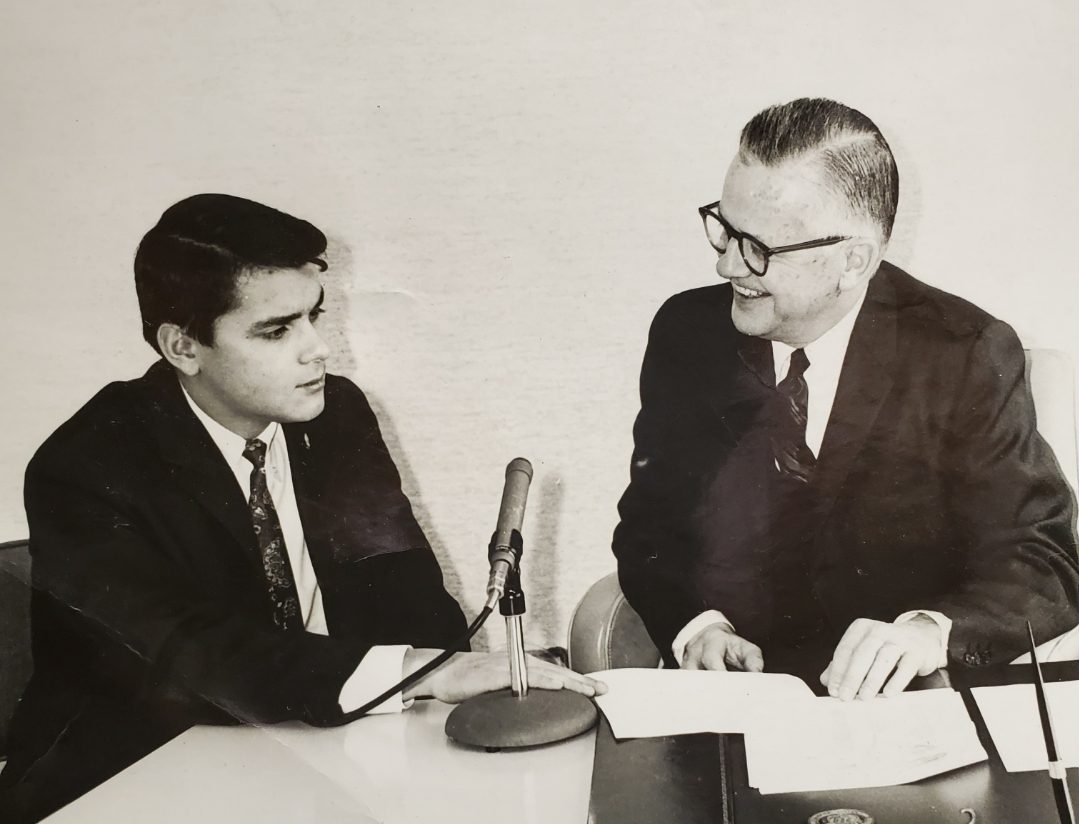Hits: 36
WPCNR YESTERDAY. News and Comment. January 2, 2016:
At midnight Thursday evening, Mayor Tom Roach and several members of the Common Council sang “Happy Birthday to the City of White Plains,” from the stage set up for the New Year’s Eve Spectacular. Security checks took as little as five minutes to clear White Plains Police security for the music and festivities starting at 10 P.M.
When the White Plains “Ball” dropped at midnight, it was 100 Years to the moment when White Plains incorporated as a city, which officially took place January 1, 2016 at midnight. There is an interesting backstory as to why the first White Plains Common Council Meeting was held at midnight.
Drawing from Renoda Hoffman’s history of White Plains, It Happened In Old White Plains, I learned that the reason for the midnight meeting was interesting.
Ms. Hoffman noted that after Governor Charles E. Hughes signed the bill granting White Plains Charter as a city in April, 2015, elections were held in November, 1915 resulting in the election of Mayor Ffarrington M. Thompson with a 795 vote margin as Mayor of the city of 19,000. Councilmen elected were Joseph AllenCharles H. Dewsnap. Frederick M. Garthwait ,Frederick C. McLaughlin John T. Rehill, and William J. Weiss.
The last meeting of the White Plains Village Trustees was held New Years Eve December 31 at 7 PM. At that meeting, it was announced the first meeting of the Common Council would be held at 10 AM New Years Day.
However when Councilmen Allen, Weiss, and McLaughlin arrived at 2 Grand Street, the law offices of Mayor Elect Thompson , Mr. McLaughlin was informed the first meeting had been held 10 hours before at midnight as the New Year started.
Councilmen Allen and Weiss said they had received notice of the change in time late New Years Eve moving the 10 A.M. meeting up 8 hours to midnight. McLaughlin said he had not been informed of the time change. Allen and Weiss complained that no reason had been given for the time change at the time they received the call from the person informing them the meeting was moved up from 10 A.M. to midnight.
City residents arriving for the 10 A.M. time, were “annoyed” when informed the meeting had already taken place.
Hoffman reports that Councilman McLaughlin “believed the time had been changed because of a statement that appeared in the Daily Argus falsely reporting that he (McLaughlin) was planning to attach appointees to city positions. McLaughlin pointed out that those men had left their previous positions to accept the appointments. He had merely suggested that council members should ‘come out in the open’ and make appointments by open balloting.”
McLaughlin is quoted as saying: “I think the meeting at midnight was stupid and undignified. They made themselves ridiculous. I shall do my duty as I see it.”
With Mayor Thompson’s vote creating a quorum commissioner appointments were approved, 4-0 at the very private midnight meeting.
The Water Commissioner Edward West reported a $24,054 surplus to the city, but warned if cows and livestock were not kept from reservoir property, the new city watersupply would become polluted. He recommended fencing the entire watershed. Then swearing in of Commissioners began.
Henry Sutherland was appointed first temporary City Clerk. Miguel Hauck, Public Works Commissioner was given office space on Court Street. Finance Commissioner Charles Fuchs was given space at the Tod Building, where the Michaelian Office Building stands now. John W. Calhoun was appointed Commissioner of Public Safety and installed in offices at the Grand Street firehouse, that also housed police and firemen.
The schools at that time were under the management of the city. Two women were chosen to serve on the Board of Education, Harriet M. Griffin for 3 months and Eveline Dickenson for 1 year. Other members were Richard E. Dougherty, Ambrose F. McCable, Willam X. Weed and R. Emmett Digney. Terms ranged from 1 to 4 years.
Charles Dewsnap was voted President of the Common Council.
There were 16 meetings of the Common Council that January 1916.
The total City Budget in 1916, including the school budget was $653,944.45.
The 2015-16 White Plains CITY budget with the school budget NOT INCLUDED is $179.2 Million, and if city budget is raised 4% will increase to over $186 Million. The White Plains City School budget for 2015-16 is $205.8 Million and if it is raised 4% will increase to $214 Million. The total cost of running the 2015-16 city and schools is $385 Million
What were the salaries of the 1916 Staff:
Mayor–$1,000
Councilman–$1,800
Commissioner of Public Works–$4,000
Commissioner of Public Safety–$2,500
Commissioner of Finance–$3,500
City Clerk–$2,500
City Judge–$2,000
Page — $200
